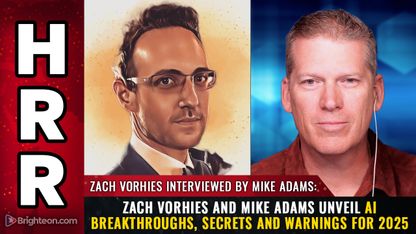
(Article by Matt Beebe republished from TheFederalist.com)
On Tuesday morning, the trial was gaveled in by Lt. Gov. Dan Patrick, sitting as judge before the entire Texas Senate, who are sitting as jurors. Almost immediately Paxton’s team made a variety of dismissal motions designed as test votes to discern where senators would lean on some of the more muddled and controversial impeachment articles. A handful of Republican senators voted to dismiss some, and a small cadre voted consistently to dismiss all, but each motion was denied by a solid majority of senators.
Before any witnesses were called, Judge Patrick exhorted the jury that according to the rules of the impeachment court that they had passed, only evidence that was sworn before these proceedings could be considered as they assessed their final votes. While it may seem obvious, it was an important reminder and a subtle rebuke of the Texas House, which had infamously rammed the impeachment resolution through the House in less than 48 hours over the Memorial holiday weekend in May after receiving a mix of closed and public third-hand summary testimony from sworn investigators who were recounting interviews from witnesses who had not been sworn during their own interviews.
Witness Testimony Went from Awkward to Worse
The House prosecution team’s first witness was Jeff Mateer who served as first assistant attorney general under Ken Paxton. Mateer is a widely respected Christian whose biggest claim to fame was having his nomination for district judge under President Trump scuttled for being too conservative. In his testimony, he came across as an Alex Vindman-style bureaucrat defending the “inter-agency consensus” who was upset at Paxton for marching to his own drum and not strictly hewing to departmental policies — as actual elected officials are often wont to do.
Defense Attorney Tony Buzbee put on a masterclass in deconstructing a web of complex allegations made by an otherwise credible witness. He offered innocent, compelling, and credible explanations for everything that drove the whistleblowers to assume Paxton’s conduct was illegal, which Mateer struggled to refute. Mateer also came across as remaining deeply offended and judgmental about Paxton’s prior confessed extramarital affair, which had clearly caused a rift between him and Paxton, thereby keeping any innocent explanations for Paxton’s conduct from being candidly communicated between the two men.
Next up was Ryan Bangert who served as deputy first assistant attorney general. His primary claim of misconduct was that during Covid, Paxton had sought to get official guidance released to forestall public “courthouse step” foreclosure sales. Bangert’s theory of misconduct was that all along this was an effort to help Nate Paul’s business interests, which he acknowledged was based on media reports, not any investigation of Paul’s particular circumstance. Nate Paul was a friend and donor of Paxton who was persistent if not downright obnoxious in trying to leverage his connections with Paxton for help with his various legal troubles. Paxton’s lawyer credibly established that because Paul had filed for bankruptcy prior to the time when the guidance was released — which automatically stayed the foreclosure — the guidance didn’t benefit Paul at all.
The cross-examination derailed into additional back and forth about how offended Bangert was with how the attorney general didn’t follow the internal process for official opinions, which at one point had Bangert bizarrely arguing a hyper-technical interpretation of Texas government code. In Bangert’s telling, it meant the informal guidance that he himself had authored really was an official opinion under the statute, even though the guidance letter literally said, “Please note this letter is not a formal Attorney General opinion under section 402.042 of the Texas Government Code; rather it is intended only to convey informal legal guidance” — as the closing line right above Bangert’s own signature block.
Ryan Vasser, the final OAG lawyer to be called as a witness, nearly single-handedly broke the Central Texas drought with his own waterworks on the stand, and that was before he had to publicly explain the cringe group texts making fun of his co-workers that he and his fellow whistleblowing wunderkinds had shared between themselves. Recall these were lawyers in the process of staging a mass exit, reporting their boss to the FBI, and seeking whistleblower protections — and they didn’t have the good sense to consider that their text messages would be discoverable during any future litigation.
Vasser was also the witness who acknowledged under cross-examination by Mitchell Little that they “took no evidence” when reporting the elected attorney general of Texas to the FBI whom he had “no reason not to” trust. He also acknowledged that for three years he and his fellow whistleblowers haven’t paid a single dime for representation from a high-powered Austin attorney who just happens to be linked to Paxton’s primary opponent, George P. Bush.
Read more at: TheFederalist.com
Please contact us for more information.

















